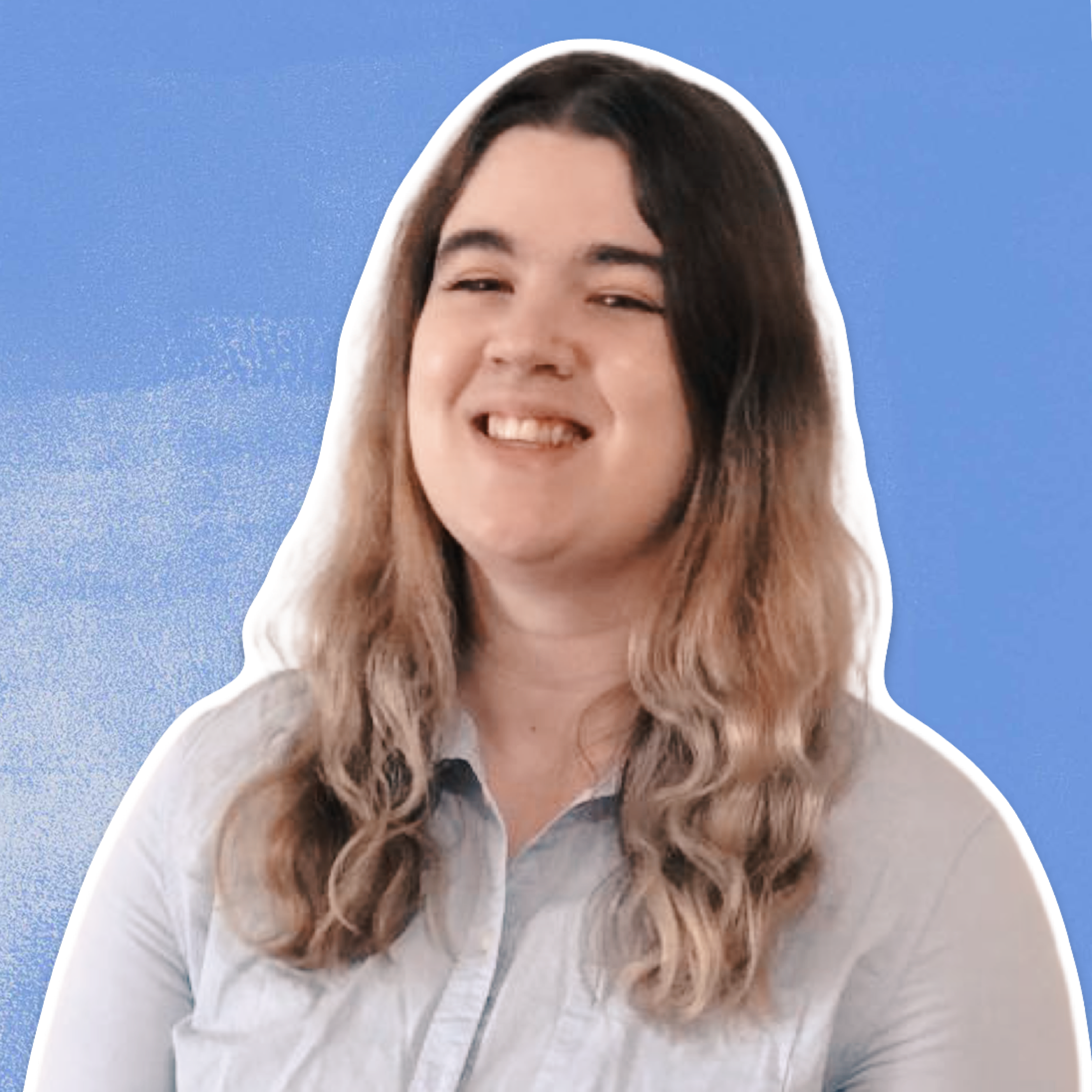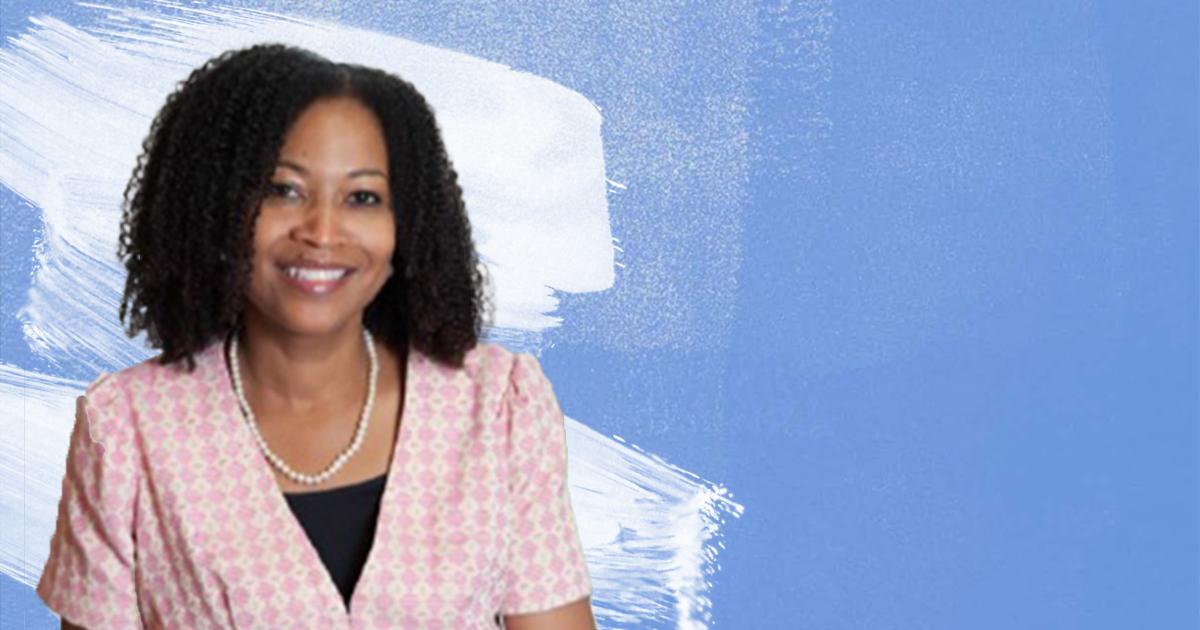
Darby Joyce
Content Marketing Coordinator
Before joining the Kogod School of Business as a management faculty member, Meredith Burnett was advised by peers outside the American University community to refrain from bringing her work experience into the classroom. To this day, she’s not sure why she received that advice; it could have stemmed from a tendency to maintain a strictly academic teaching setting or from a greater focus on theory and research during her PhD program. Now, however, Professor Burnett knows that her professional life is not only relevant to the courses she teaches but also deeply compelling to her students.
“To have the jobs I’ve had, I had to go get them,” she said. “When I tell students that, they become very interested in what I have to say in a way they weren’t before.”
With previous roles in major companies such as Shell and Pfizer, it’s no wonder that business students are interested in Burnett’s prior work. As a counselor for Shell, she worked on everything from sales and recruitment to physical and environmental safety, ensuring that local gas station owners working with Shell had what they needed to succeed. She eventually moved on to a healthcare representative role with Pfizer, where she consulted with physicians about the company’s prescription offerings. By the time she left to pursue her PhD at the University of Maryland, her experience had left her with many observations—and questions—about how businesses and the people within them interact.
“I was interested in why some people sit silently in meetings while others are very verbal and engaging, and how people’s comments towards others might contribute to their silence and reluctance to speak up,” she recalled. “I wanted to learn more about what shuts people down in organizations. And when I shared those frustrations in my PhD project, my colleagues said I need to look at HR and organizational behavior.”
That conversation led Burnett to research interests that she still pursues today. She studies behavior patterns and hierarchies within businesses and how human resources teams can use them to inform their decisions. Her published papers range in topics from what motivates a job seeker to apply for specific openings to how leadership behavior can dictate the behavior of employees. Understanding how personality affects interactions in business requires an interdisciplinary approach that combines marketing and management theories with psychological and sociological concepts; Burnett’s research and hands-on experience gives her the perspective to tackle that multi-pronged approach.
“When I was in sales and marketing, I could take these marketing theories and concepts to figure out how people make decisions about which gas station they go to or which products doctors choose for their patients,” she explained. “Then you learn from those theories and use them in an HR setting to explore how employees make benefits decisions if they have a cafeteria-style benefits plan. Now, suddenly, you have something that spans two research areas instead of just one.”
With such a wide range of perspectives, Burnett’s studies have involved methods such as surveys, field research, and controlled experiments. However, she’s learned from her years of work that relationships are remarkably fluid and that exploring those relationships requires an open mind. “Things happen at a societal level, and people’s perceptions and ideas all change,” she said.
The way people see things continuously evolves, so the values and relationships at the forefront five or ten years ago may not hold today.”
-Apr-07-2023-07-46-50-6111-PM.png)
Meredith Burnett
Professor of Management, Kogod School of Business
With that in mind, Burnett’s ideal research methods involve surveying people within an organization, as she can go back and conduct follow-up surveys to see how a workplace’s culture, dynamics, and priorities all change over time.
Considering the constantly changing way people work together and for others, Burnett tries to impart the importance of non-linear thinking to her students. Both relationships and aspirations change naturally over time, and she knows from experience that career paths can wind into unexpected places. Her advice to students as they move through their degrees is to keep an open mind and pursue opportunities with their values in mind. “When I say you need to decide your career path, I don’t mean knowing exactly what you want to do,” she said.
You need to figure out where you want to be and what brings you joy. If you can figure that out, the path to getting there becomes easier.”
-Apr-07-2023-07-46-50-6111-PM.png)
Meredith Burnett
Professor of Management, Kogod School of Business
As for her own career path, Professor Burnett still has plenty of questions she wants to answer about how people interact with their jobs and coworkers. “In this line of research, we typically look at an employee’s behavioral responses, so I’m interested in exploring the physiological response as well,” she said. “If an organization has a payroll specialist who forgets to pay people, for example, of course, the employees will be in a bad mood. But will they end up needing to see a doctor for an upset stomach?” The physical toll of stress is well-documented, and Burnett is interested in seeing how that applies in organizational settings and in response to both positive and negative situations. She also hopes to investigate how employees perceive the support they get in their jobs and how that support impacts their willingness to share ideas with their teams.
As a professor, meanwhile, Burnett plans to continue preparing her students for the human side of work. Whether sharing her personality test results with students or telling them about lessons she learned from her previous professions, Burnett finds ways to tie her experiences into what she teaches. “I talk with my classes about emergencies or crisis management through the lens of my work with Shell, and I talk about impression management and organizational culture with examples from my time with Pfizer,” she explained. “I bring those experiences into the classroom every chance I get.” After all, business isn’t all theory, and learning from professors with profound collaborative experiences is a surefire way for Kogod students to build on those experiences themselves.
